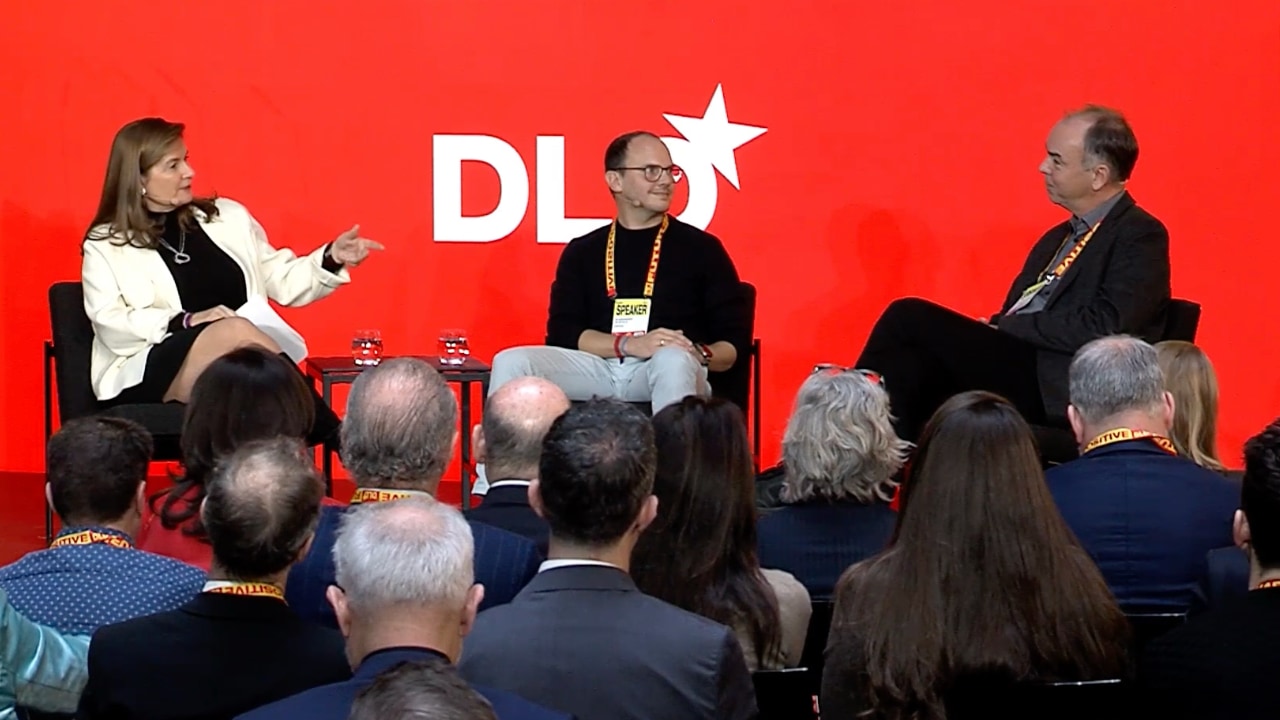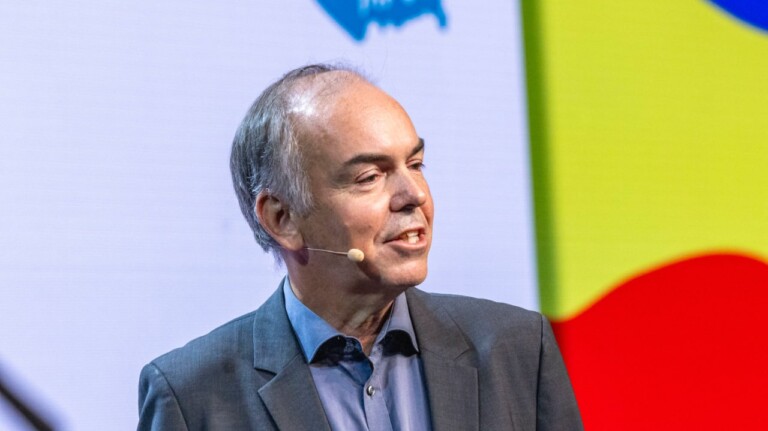The transformative potential of quantum computing and Munich’s role as a leading hub for innovation take center stage at this DLD25 panel discussion with Dieter Kranzlmüller (Leibniz Supercomputing Center) and Alexander Glätzle (planqc), moderated by Ann-Kristin Achleitner (Technical University Munich).
“Quantum technology will help us tackle some of the world’s toughest challenges”, Achleitner says, setting the stage for a conversation on bridging the gap between research and industry.
Kranzlmüller, head of the Leibniz Supercomputing Center, responds to recent skepticism about quantum computing’s timeline, particularly NVIDIA CEO Jensen Huang’s claim that it may take 20 years to develop a useful quantum computer. “If NVIDIA is able to predict the future, maybe their AI is more powerful than we thought”, he quips, arguing that progress is accelerating.
Glätzle, co-founder of planqc, agrees, pointing to recent breakthroughs like scaling quantum computers to 1,000 qubits and advancements in error correction. “By the end of this decade, we will have first useful applications”, he predicts, emphasizing the rapid pace of innovation.
Munich’s unique innovation ecosystem makes the Bavarian city a magnet for quantum researchers, Glätzle explains. “It’s the combination of academic excellence, strong industry, and robust government support that makes Munich the right place to build quantum computers.”
Kranzlmüller adds that Munich’s integration of quantum computing with traditional supercomputing infrastructure as another differentiator. “We are world leading on that one”, he says, “and I think there are other nations who really want to copy what we are doing here.”
Watch the video for further insights into the importance of long-term funding and the vision of Munich as a global leader in quantum computing.





